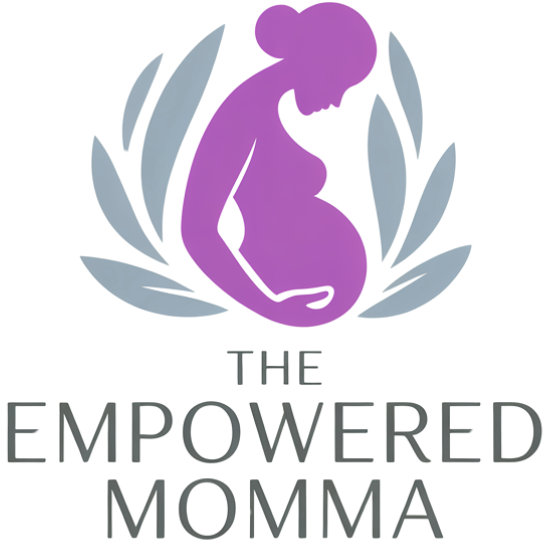Chocolate is a popular treat loved by many, but parents often wonder if it’s okay for babies to have chocolate too. Although a baby can technically try a small taste of chocolate as soon as they start eating solids (usually around 6 months), doctors generally suggest waiting longer before making chocolate a regular part of a child’s diet. Introducing solids is an important time in a baby’s development, and chocolate comes with special concerns because of what it contains.
Most pediatricians agree that it is best to avoid giving chocolate to babies on a regular basis because it contains added sugar, caffeine, and other ingredients that young children don’t need. A tiny, melted bit of chocolate is unlikely to cause harm, but regular servings are not recommended. Let’s look closer at why chocolate is treated differently from other foods and when, if at all, it’s okay for babies to try it.
Can Babies Eat Chocolate?
What’s in Chocolate That Affects Babies?
Chocolate is made from cacao seeds, which go through several steps before becoming the chocolate we eat. This process adds ingredients like sugar, cocoa butter, and sometimes milk, soy, or nuts. Chocolate also contains caffeine and theobromine-mild stimulants that affect the brain and body. While adults are used to these, babies’ bodies are much more sensitive. Most chocolate also contains a lot of sugar, which can cause health problems for babies. Chocolate might also include ingredients that cause allergies or pose a choking hazard, which we’ll discuss later.
Is Chocolate Safe for Babies Under 1 Year?
The safety of chocolate for babies, especially those under 1 year, is debated. Some resources say a small taste in a food (like a baked good) is okay at 6 months, but big medical groups like the American Academy of Pediatrics recommend waiting until after age 2. That’s mostly due to the sugar, caffeine, and theobromine. Babies under 1 should get most of their calories from breast milk or formula, and eating sweets can make them refuse healthier foods. Also, chocolate products may contain honey, which should not be given to babies under 12 months because it can cause botulism. So, even though an occasional taste isn’t likely to cause a major problem, regular or large amounts are not advised for infants.
When Can Babies Eat Chocolate?
Best Age to Start
So, when is it better to give a baby their first chocolate? While it is possible to give a small taste after 6 months, most experts suggest waiting until a child is at least 12 months old and even up to 24 months. By 1 year, babies are eating a wider variety of foods and their digestive systems and brains are more developed. They will also be less likely to eat too much chocolate instead of more nutritious foods. Even after 1 year, chocolate should only be given rarely and in small amounts.
Why Wait Until After the First Birthday?
- High Sugar: Babies need foods packed with nutrients, not sugar. High sugar diets early on can lead to tooth decay, weight gain, and create a sweet tooth.
- Caffeine and Theobromine: These substances can make babies restless and fussy, and mess with sleep patterns.
- Forming Good Habits: Waiting longer helps babies learn to enjoy a variety of healthy foods instead of developing a craving for sweets.

What Are the Risks of Giving Babies Chocolate?
Chocolate may taste good, but it brings some problems for very young children. Here’s what parents should watch out for:
1. High Sugar Content
- Too much sugar can cause cavities, obesity, and other long-term health concerns.
- Kids who eat lots of sweet foods early often prefer them over nutritious foods, which affects their diet and growth.
2. Caffeine and Theobromine
- Even small amounts can cause irritability, jitteriness, and trouble sleeping in babies.
- These effects are much stronger in little ones than in adults.
3. Choking Hazard
- Hard, chunky, or chewy pieces of chocolate can be difficult for babies and may get stuck in their throat.
- Always avoid giving babies firm chocolate candy or anything not fully melted and soft.
4. Allergy Risks
- Most chocolate contains cow’s milk, soy, and sometimes nuts-all of which are common allergens.
- Babies with a family history of allergies should only have chocolate after checking with a doctor.

Does Chocolate Affect Sleep and Behavior?
Chocolate can make some babies more active, crankier, or make it harder for them to sleep. Here’s how:
| Substance in Chocolate | Possible Effect on Baby |
|---|---|
| Caffeine | Trouble falling asleep, staying asleep, being extra alert or fussy |
| Theobromine | Feeling jumpy or irritable, possible changes in sleep patterns |
| Sugar | Short bursts of energy, possible mood swings, crankiness |
If you notice your baby is acting different or having trouble sleeping after eating chocolate, it may be best to wait longer before offering it again.
Is Chocolate a Common Allergen for Babies?
Chocolate itself isn’t a common cause of allergies, but most chocolate products include other ingredients that are. Milk chocolate contains dairy, which is one of the most likely allergens for babies. Chocolate may also have nuts, soy, and eggs-so be careful if your child hasn’t tried these foods before or has a family history of allergies.
Allergic Reaction Signs
- Skin: Rashes, hives, or swelling
- Stomach: Vomiting, diarrhea, colic, or constipation
- Breathing: Coughing, wheezing, trouble breathing, runny nose
- Severe: Swelling in face, lips, tongue, or trouble breathing-get medical help right away
If you think your baby had an allergic reaction, see a doctor before you try the food again.
Chocolate Types: Which Are Safer for Babies?
Not all chocolate is the same. The main types are dark chocolate, milk chocolate, and white chocolate. Here’s how they compare:
| Type | Caffeine | Sugar | Comments |
|---|---|---|---|
| White Chocolate | Almost none | Very high | Lacks cocoa solids, but lots of sugar and fat |
| Milk Chocolate | Low | High | Contains dairy, less caffeine than dark chocolate |
| Dark Chocolate | High | Lower | Most caffeine and theobromine, not best for babies |

If you choose to give chocolate, white or milk chocolate have less caffeine but more sugar. Dark chocolate has less sugar but more stimulants-not a good trade-off for young kids.
How to Introduce Chocolate to Your Baby
Guidelines for the First Time
- Offer a very small taste, not a whole bar or candy.
- Choose chocolate that is fully melted into a soft food (like yogurt or a muffin).
- Avoid firm or chewy pieces that can choke your baby.
- Be present and watch your child for allergic reactions or choking.
- Try new foods one at a time, at the start of the day, so you can watch for any changes.
Portion and Frequency Tips
- Chocolate is a treat-give it rarely, not every day.
- Keep servings very small: just 1-2 bites or a tiny bit mixed in with another food.
- Don’t give chocolate right before nap or bedtime, since it can disturb sleep.
How to Prepare and Serve
- No hard or round candies, bars, or chunks.
- Melt chocolate and mix into things your child already eats (yogurt, oatmeal, or soft pancake).
- If using sprinkles, make sure they melt quickly and are completely mixed into the food.
- Always sit with your baby while they eat.
Chocolate Milk and Hot Chocolate: Safe for Babies?
Chocolate-flavored drinks, like chocolate milk and hot chocolate, are sweet and tasty, but the rules are even stricter than for solid chocolate.
When Can Babies Have Chocolate Drinks?
- Wait until at least 12 months, and longer if possible.
- For babies and toddlers, plain milk or water is better for drinking. Chocolate milk or cocoa is just an occasional treat.
Concerns About Chocolate Milk for Kids
- Chocolate milk is high in sugar, which can lead to tooth decay and weight gain.
- The sweet taste may stop them from wanting plain milk or water.
- Chocolate milk still contains some caffeine and should be kept to a minimum.
- Avoid using it to replace regular milk or formula as it doesn’t have the same nutritional value.
- Only serve chocolate milk in small amounts and not daily.
Simple Tips for Parents About Chocolate and Babies
- Wait until at least 12 months (preferably longer) before introducing chocolate.
- It’s better to offer other nutritious foods without added sugar.
- Serve chocolate only as a rare treat, not a regular snack or drink.
- Choose soft, melty chocolate over anything hard or chewy-which can choke young children.
- Check labels for possible allergens like milk, soy, and nuts.
- If your child has food allergies or you’re unsure, ask your pediatrician first.

Starting healthy habits early-including limiting sweets-helps your child learn to enjoy a range of good foods as they grow. Moderation, safety, and proper timing are the keys when thinking about giving babies chocolate.

